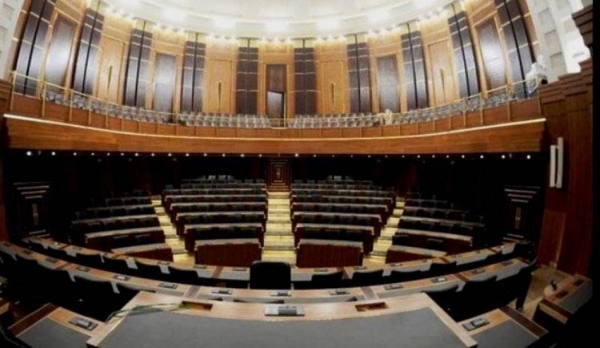Reallocation of 5 Christian Seats
In searching for a new parliamentary electoral law, some “Christian political forces” have called for moving 5 “Christian seats” from their current “Muslim-majority districts” to other “Christian-majority districts”. Waiting to see whether this quest would be achieved or not, what are these sectarian and political seats and who are their holders?
Table No. 1 shows the following:
-Out of the 5 seats, 4 are in the Sunni-dominated areas of Future Movement and other figures’ influence, and one (Baalbeck-Hermel) is in a Shiite-dominated area.
-Two of these Maronite seats (in Tripoli and Western Beqa’a-Rashaya) were established in 1992, two (Maronite seat in Baalbeck-Hermel and Evangelical seat in Beirut) in 1960, while the Minorities’ seat has been in existence since 1922.
|
Current district |
Seat |
Number of seats in the current district |
Number of voters in the current district |
District to which the seat is moved (receiving district) |
Number of voters in the receiving district |
Number of seats in the receiving district |
MPs |
Date of existence of seat in the current district |
|
Tripoli |
Maronite seat |
1 |
4387 |
Batroun |
44,325 |
2 |
Jean Obeid- Elias Attallah-Samer Saadeh |
1992 |
|
Western Beqa’a and Rashaya |
Maronite seat |
1 |
10133 |
Kessrouan-Jbeil |
143,872 |
7 |
Robert Ghanem |
1992 |
|
Ballabeck-Hermel |
Maronite seat |
1 |
22765 |
Kessrouan-Jbeil |
143,872 |
7 |
Morshed Habshi –Bashir Keirouz- Antoine El-Hrawi-Tarek Habshi-Rabiha Keirouz-Nader Sokar-Emile Rahme |
1960 |
|
Third District of Beirut |
Evangelical seats |
1 |
2601 |
First District of Beirut (Ashrafieh-Rmeil-Saifi-Mdawwar) |
4072 |
0 |
Charles Saad-Samir Eshak- Antranik Manoukian- Norjian Demerjian- Abraham Dadayan-Bassel Fleihan-Bassem El-Chab |
1960 (1) |
|
Third District of Beirut |
Christian Minorities’ seats |
1 |
12537 |
First District of Beirut (Ashrafieh-Rmeil-Saifi-Mdawwar) |
11,477 |
0 |
Farid Gibran- Assmar-Assmar-Jamil El Chammas- Nabil de Freige |
1922 (2) |
Source: Parliamentary electoral laws and results (1922-1992)
The process of moving parliamentary seats is a form of gerrymandering. It would affect the electoral results and sometimes determine the winning MPs. Instead of being centered on correct representation, the dispute over the electoral law continues as it has always been since Lebanon’s independence in 1943, i.e revolving around the political leaders’ share.
- In 1960, the Evangelical seat was allocated to the Christian-majority First District of Beirut that included Mdawwar, Ashrafieh, Rmeil, Saifi, Marfaa, and Mina Hosn. In the 1992 and 1996 elections, Beirut was one electoral district. In the 2000 and 2005 elections, the Evangelical seat was allocated to the Muslim-Christian First District of Beirut that included Ashrafieh, Mazra’a, and Saifi. However, in the 2009 elections, it became allocated to the Third District of Beirut that includes Mazra’a, Msaytbeh, Mina Hosn, Dar Mraisseh, Ras Beirut, and Zqaq Blat.
- In 1960, the Minorities’ seat was allocated to the Sunni-Shiite-Christian Second District of Beirut that included Bachoura, Zqaq Blat, and Ain Mreisseh. In the 2005 and 2006 elections, it was allocated to the Second District of Beirut that included Msaytbeh, Bachoura, and Rmeil. However, in the 2009 elections, it became the seat of the Muslim-majority Third District of Beirut.








Leave A Comment